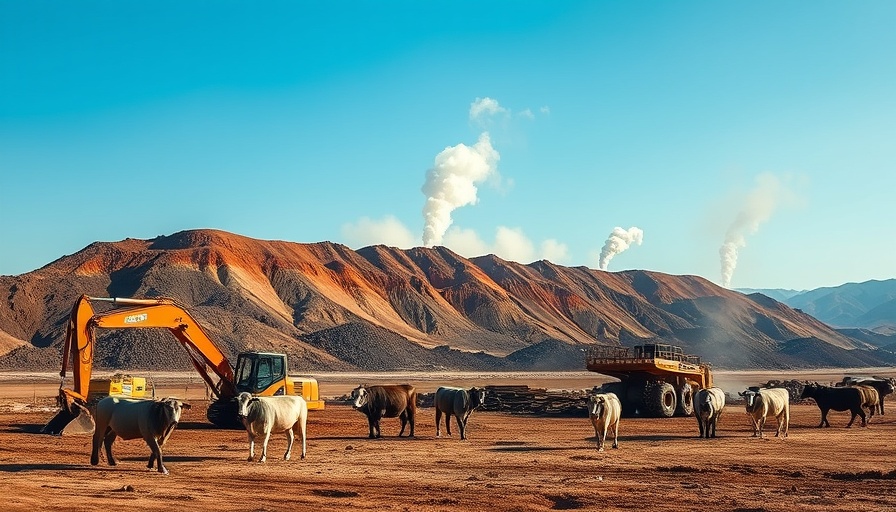
Is Trump's Impact on Clean Energy Jobs Sustainable?
The aggressive pivot away from clean energy during President Donald Trump's first term in office has had serious ramifications for the American job market. Recent reports indicate a stunning 62,554 jobs at risk due to canceled, delayed, or threatened clean energy projects. This dramatic shift highlights the stark contrast between the momentum for clean energy seen prior to Trump's election and the uncertainty now pervading the industry.
Background: A Boom in Clean Energy
Before Trump's policies took hold, the United States was experiencing a clean energy renaissance. Initiatives such as the tax credits implemented through the Inflation Reduction Act sparked a surge in job creation within the clean energy sector. In fact, over 400,000 new jobs were announced across various domains, reflecting America's strategic shift towards a more sustainable energy landscape. The gains in solar, wind, and electric vehicle industries were set to fuel robust economic growth.
The Causal Link: Policies That Matter
As noted in the Climate Power report, Trump's administration's aversion to clean energy investments has not only contributed to job losses but has also sparked deeper economic insecurity. The report states that 95 clean energy projects faced either delays or cancellation due to policy shifts. The stark contrast between pre- and post-election trends raises legitimate concerns about the future trajectory of the clean energy economy.
Future Predictions: Where Do We Go From Here?
The damage done may not just be immediate. Experts warn that continuation of the current legislative agenda could lead to greater job losses and economic fallout. Manufacturers who once positioned themselves for growth are now reconsidering, further exacerbating the crisis in American manufacturing. Should these tax credits be repealed or rolled back, it could potentially lead to a generation-long impact on the industry, restricting future investments in innovation and technology.
Evidence of a Growing Crisis
The narrative from climate advocacy groups paints a dire picture of what lies ahead if the current trend continues. The president of the Natural Resources Defense Council, Manish Bapna, notes that Trump's ongoing policies could lead to one of the most significant environmental assaults in history. If resulting legislation hurts clean energy jobs, the repercussions could ripple through the economy, outweighing any immediate benefits from job growth in traditional sectors.
The Human Cost of Job Losses
What does this mean for workers and communities dependent on clean energy jobs? Thousands stand to lose not just employment, but a stable future for their families and communities. Clean energy jobs often promise good wages and benefits, positioning these sectors as beacons of hope amid economic uncertainty. As unemployment levels rise, the stakes are not just monetary but deeply personal for many.
What Can Be Done? Actionable Steps
For those concerned about the future of clean energy in America, understanding the implications of proposed policies and engaging in discussions about sustainable practices is critical. Advocating for policy changes that support clean energy investments can foster economic stability and job growth. Engaging with local representatives and emphasizing the importance of green jobs can also promote awareness in communities.
As America faces a pivotal moment in its energy landscape, it’s essential to recognize the significant investment in clean energy not merely as an economic choice but as a social responsibility to empower communities and individuals for a brighter future.
 Add Row
Add Row  Add
Add 




Write A Comment